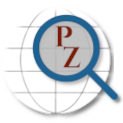Projects
2023
In collaboration with the Croatian Institute of History and the Croatian Memorial-Documentation Centre of the Homeland War, the Miroslav Krleža Institute of Lexicography submitted the CroFacta project to the Public Call for Grants for the Establishment of Information Verification (fact-checking) issued by the Agency for Electronic Media. The main purpose of this project is to establish a publicly visible platform for verifying media facts (information) related especially to contentious historical, cultural, and social topics of the 19th and 20th centuries, but also of earlier periods. The project is financed by the European Union (NextGenerationEU) and will be active until December 2025.
The implementation of the project Encyclopaedia of the Bay of Kotor – Phase 1: Creation of an Alphabetical Index has begun, receiving a dedicated donation from the Adris Foundation and financial support from the Central State Office for Croats Abroad. The Adris Foundation also approved funding for the project Homeland War Encyclopaedia Portal (translation of texts into English), which is being carried out in collaboration with the Croatian Memorial-Documentation Centre of the Homeland War.
Together with the Faculty of Humanities and Social Sciences at the University of Zagreb, the University of Zadar, the University of Rijeka, and the Josip Juraj Strossmayer University of Osijek, the Miroslav Krleža Institute of Lexicography initiated the Croatian Initiative for Open Scholarly Books, aiming to highlight the importance of open access to scholarly books. This initiative aims to create a framework for exchanging experiences and good professional, organisational, and technological practices, to ensure support from relevant bodies that finance and evaluate scholarly activities, and to initiate the development of a common infrastructure for better visibility of open publications.
The Research Group for the Study of the 18th Century in Croatian Lands (IGOS), in collaboration with the Department of Art History at the Faculty of Humanities and Social Sciences, University of Zagreb; the Croatian Institute of History; and the Miroslav Krleža Institute of Lexicography, organised an interdisciplinary scientific conference Antiquity in Croatian Culture, Art, and Literature in the ‘Long’ 18th Century , part of which was held at the Institute. Some of the funds for organising the conference were secured through donations from the Adris Foundation and the Croatian Academy of Sciences and Arts Foundation.
At the invitation of the Institute of Cultural History of the Research Centre of the Slovenian Academy of Sciences and Arts (ZRC SAZU), the Miroslav Krleža Institute of Lexicography participated in the final event of the project In/Tangible European Heritage – Visual Analysis, Curation and Communication (InTaVia), an international symposium on biography and its role and future in the digital world titled There’s History in All Men’s Lives at ZRC SAZU in Ljubljana.
2022
In collaboration with the Institute for Migration and Ethnic Studies, a three-year scientific-professional project titled Mobility of People and Ideas: Migrations and Proto-modern Cultural Development of the Croatian Lands was launched, aiming to present to the broader public the research results on how prominent individuals from various fields of human activity contributed to the development of the Croatian historical lands in the premodern period.
Organised by the Miroslav Krleža Institute of Lexicography, under the chairmanship of Director General Dr Bruno Kragić, the second international European and North American Encyclopedia Conference was held, bringing together editors and publishers from 11 countries, during which the establishment of the European Encyclopedia Network was agreed upon. The conference was held with financial support from the Ministry of Foreign and European Affairs of the Republic of Croatia, which approved funds for its organisation in 2021 within the Public Call for Proposing Projects for Cultural Promotion, Public Diplomacy, and the International Visibility of the Republic of Croatia that Will be Carried Out by the Ministry of Foreign and European Affairs and the Diplomatic and Consular Posts of the Republic of Croatia in the World.
With the support of the Croatian Tourist Board, as part of the ‘ArtYard/ArtStorage’ project (Project LEXART) and in collaboration with the Academy of Dramatic Art, University of Zagreb (ADU), an exhibition of artistic photographs by students of the ADU Department of Cinematography organised under the title Encyclopaedias through the Lens.
The Miroslav Krleža Institute of Lexicography participated in the History Festival Kliofest, organising a panel discussion titled The Past through the Lives and Works of Individuals, also marking the publication of the 9th volume of the Croatian Biographical Dictionary.
2021
Within the frame of the Public Call for Proposing Projects for Cultural Promotion, Public Diplomacy, and the International Visibility of the Republic of Croatia that Will be Carried Out by the Ministry of Foreign and European Affairs and the Diplomatic and Consular Posts of the Republic of Croatia in the World, the Ministry of Foreign and European Affairs has approved funding for the Institute's efforts to implement the project European and North Atlantic Encyclopedia Conference.
The Institute has continued to participate in the project Znameniti.hr, within whose frame the programme The Famous and Sport was implemented. The Croatian Ministry of Culture and Media provided funding for this, as part of its support for digitisation programmes in archives, libraries, and museums.
With the support of the Croatian National Tourist Board, and within the frame of the project ‘ArtYard/ArtStorage (Project LEXART), an exhibition entitled Knowledge, Image, Culture – Encyclopedias Full of Life was arranged in honour of the Institute's 70th founding anniversary, the 40th anniversary of Miroslav Krleža's death, and the 120th anniversary of Mate Ujević's birth as well as to promote Croatian encyclopedic heritage.
2020
At the invitation of the Research Centre of the Slovenian Academy of Sciences and Arts, the Institute has become an associated partner of the project In/Tangible European Heritage−Visual Analysis, Curation and Communication (InTaVia), one of whose goals is to develop a methodology for harmonising, structuring, and integrating data from European national biographical databases. The project proposal was submitted to the Horizon 2020 programme and approved for funding.
As part of the support offered to digitisation programmes in archival, library, and museum activities, the Croatian Ministry of Culture approved funding for the Institute’s implementation of the programmes Virtual Exhibition of the Miroslav Krleža Institute of Lexicography and Digitisation of the Maritime Encyclopedia of the Miroslav Krleža Institute of Lexicography. The programme Digitisation of Materials on Eminent Families and 3-D Visualisation on the Portal Znameniti.hr was also implemented. Funding for this was provided by the Croatian Ministry of Culture through the project Znameniti.hr.
At the invitation of the ICARUS Croatia association, the Institute participated in the virtual exhibition Tales from the Archive, which was launched within the frame of the activities of the Creative Europe project CREARCH − CReative European ARCHives as innovative cultural hubs. At this exhibition, the Institute presented the Digitised Catalogue of the Retrospective Bibliography of Articles.
2019
Following the call for proposals of the EEA and Norway Grants Fund for Regional Cooperation in 2018, the Institute (as a lead partner) submitted the application Stronger together: Building visible and sustainable online encyclopaedias for free access to reliable knowledge in an era of post-truth and propaganda, which was developed in collaboration with the Great Norwegian Encyclopedia, the National Library of Latvia, and the Montenegrin Academy of Sciences and Arts as the members of the consortium. The application has successfully passed the first stage of evaluation (it was among 42 shortlisted out of 700 submitted applications). The full project proposal was submitted in July 2019.
In 2019, the Ministry of Culture of the Republic of Croatia financed two of the Institute’s projects: Digital Collection of Mate Ujević, carried out in collaboration with the National and University Library as support for digitisation programmes in archival, library, and museum activities (digitised Croatian Encyclopedia) and Biobibliographica Nova (as support for book publishing).
2018
In 2018, the Institute joined the consortium of the Time Machine (TM) project, which brings together more than 300 organisations from 34 countries. Time Machine is a large-scale research initiative aiming to develop the big data of the past, a huge distributed digital information system mapping European social, cultural, and geographical evolution through time. TM will design and implement advanced new digitisation and Artificial Intelligence technologies to mine Europe’s vast cultural heritage, providing fair and free access to information that will support future scientific and technological developments in Europe.
As part of the support offered to digitisation programmes in archival, library, and museum activities, the Ministry of Culture of the Republic of Croatia approved funding for the project Digitisation of the Catalogue of the Retrospective Bibliography of Articles in 2018.
The Institute signed a letter of agreement with the Jožef Štefan Institute (Ljubljana, Slovenia), one of the partners in the CEF eTranslation TermBank (eTTB) project, which aims at identifying and collecting terminological resources in all EU languages. The Institute provided the following terminological resources to the eTranslation TermBank project: the Lexicon of Film, Croatian Biographical Dictionary, Lexicon of Medicine, and Lexicon of Football.
2017
In 2017 and 2018 the Institute participated in the international DARIAH project Cooperation Framework of Digital Infrastructure in the Region − Opportunities and Needs in the Case of Material Concerning Famous People in Science and Culture, which won the call Cultural Heritage and Humanities Research in 2017. The projects's aim was to discuss the important issues about using digital infrastructure in cultural and scientific communities of the wider region (Croatia, Bosnia Herzegovina and Slovenia), with the special emphasis on data exchange and copyrights, as well as to create the guidelines on the interoperability of digital infrastructures in the region. Besides the Instiute, partners in the project included the Croatian Academy of Sciences and Arts, the National and University Library, the Zagreb City Libraries, the State Archive in Varaždin, the Museum of Arts and Crafts, the Institute of Ethnology and Folklore Research, ICARUS HR, ArhivPro d.o.o., the Slovenian Academy of Sciences and Arts and the National Museum of Bosnia and Herzegovina. As a result of the project, the thematic portal EminentPeople was launched in 2018.
In 2017 the Institute joined the project Znameniti.hr, which was launched in 2016 by the Croatian Academy of Sciences and Arts together with its Library as coordinator, the National and University Library in Zagreb, the Zagreb City Libraries and the State Archive in Varaždin. The project aims at building a thematic portal containing digital material on the leaders of Croatian culture, science, arts and public life from different collection/repositories.
2016
Following the Call for the procurement of electronic dictionaries and databases in 2016, the Institute provided the digitised version of the Lexicon of Law to the European Commission.
2015
From 2015, the Foundation of the Croatian Academy of Science and Arts has been financially supporting the publishing of the Croatian Encyclopaedia of Technology.
Cooperation
2023
An agreement on donation was reached with the company Orbico d.o.o. for the implementation of a three-year project on the multimedia professional-popular processing of Croatian 20th-century history titled Out the Past towards the Future. A Multi-layered Interpretation of the Croatian Twentieth Century: Dialogical Reconstruction, Education, Analysis, Meaning, State Identity (SNOVI), which will be carried out in collaboration with about 40 scholars from Croatia and abroad, with the professional and administrative support of the Miroslav Krleža Institute of Lexicography.
An agreement on cooperation was signed with the Department of South-Slavic Languages and Cultural Studies at the Institute of Slavic and Hungarian Studies, Faculty of Language, Literature and Humanities of the Humboldt University of Berlin. In collaboration with the Croatian Institute of History, the German Research Foundation provided funds for the implementation of the three-year project The Encyclopedia of Yugoslavia: Between Yugoslav and Sub-Yugoslav Nation-Building(s) (1955–90). The Miroslav Krleža Institute of Lexicography will collaborate with these institutions in the implementation of this project, primarily by providing insight into archival materials and participating in the organisation of a scientific conference in 2025.
Members of the editorial board of the Latvian National Encyclopaedia visited the Miroslav Krleža Institute of Lexicography as part of the Erasmus+ program, the EU’s largest program for education, training, youth, and sport. The goal of this visit was to acquaint Latvian encyclopaedists with the activities of the Institute, primarily with the work on the Croatian Encyclopaedia , one of the Institute’s core projects, and to define possible areas of cooperation.
In accordance with the agreement reached at the European and North American Encyclopaedia Conference held at the Miroslav Krleža Institute of Lexicography in 2022, the European Encyclopedia Network was formally established at the beginning of 2023, currently encompassing encyclopaedia publishers from 13 countries, led by the Institute’s Director General, Dr Bruno Kragić.
The Miroslav Krleža Institute of Lexicography supported the Helsinki Initiative on Multilingualism in Scholarly Communication, launched by the Federation of Finnish Learned Societies, the Committee for Public Information, the Finnish Association for Scholarly Publishing, Universities Norway, and the COST Action ‘European Network for Research Evaluation in the Social Sciences and the Humanities’ (ENRESSH).
2022
Along with more than 140 institutions worldwide, the Miroslav Krleža Institute of Lexicography supported the Action Plan for Diamond Open Access, initiated by the association Science Europe, the cOAlition S initiative, the OPERAS research e-infrastructure (Open Scholarly Communication in the European Research Area for Social Sciences and Humanities), and the French National Research Agency (ANR).
2021
Supported by the Croatian National Tourist Board, the Institute is the leader of the project ‘ArtYard/ArtStorage’ (Project LEXART), whose aims are to paint the internal walls in the Institute's courtyard (22–24 Frankopanska Street) with murals of renowned artists; organise exhibitions, workshops, and other programmes in the fields of visual and performing arts, music, and architecture; and to promote the Croatian encyclopedic heritage in the Institute's storage area (Lexart Storage Area). In cooperation with the LEXART Project Association from Zagreb, this project was envisioned as an innovation in cultural offerings, but also as a specific contribution to cultural tourism, through which the CNTB strives to raise consciousness and interest among the actors in the tourism sector for this area of tourism.
An agreement was made with Repertoire International de Litterature Musicale, Inc. (RILM) from New York, USA, which will enable the digitisation and incorporation of the Encyclopedia of Music (2nd edition) and the Lexicon of Yugoslav Music in the online collection of reference literature relevant to music, the RILM Music Encyclopedias.
The French Institute in Zagreb initiated an agreement according to which the Institute (together with the National and University Library in Zagreb and the Croatian Ministry of Culture and Media) was to participate in the project to restore, preserve, and present the original copies of Diderot's Encyclopedia in honour of the Institute's founding centenary in 2022.
2020
The Institute became a member of the Time Machine Organisation, a European network encompassing more than 600 scientific and cultural institutions with the goal of networking European cultural heritage and its accessibility through web pages and applications, and the Croatian Association for Scholarly Communication (CROASC), which promotes the publishing activities of national scholarly and professional journals as well as publications that promote science to the general public.
2018
In 2018, the Institute signed collaboration agreements with the Montenegrin Academy of Sciences and Arts and the Institute for Migration and Ethnic Studies (Zagreb).
2015
The Institute joined the DARIAH-HR network in 2015, a part of the pan-european Digital Research Infrastructure for the Arts and Humanities, DARIAH-EU, which aims to enhance and support digitally-enabled research across the humanities and arts.
Together with the Institute of Art History, the Institute signed a contract in 2015 about the implementation of the project Modern and Contemporary Artist Networks, Art Groups and Art Associations − Organisation and Communication Models of Collaborative Art Practices in the 20th and 21st Century Art, financed by the Croatian Science Foundation. For the project's needs, the Institute will ensure the retrieving and use of the digital formats of the Croatian Biographical Dictionary, the Croatian Encyclopaedia of Art and the Lexicon of Art.












 Hrvatska
Hrvatska  Hrvatski
Hrvatski  Portal hrvatske
Portal hrvatske Portal
Portal Hrvatski
Hrvatski  Hrvatska.eu
Hrvatska.eu Studia
Studia  Digitalizirani
Digitalizirani